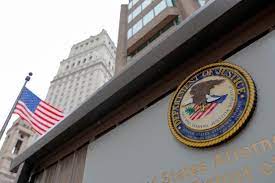Here Comes DOJ – Corporate Crime Enforcement

Sorry to repeat myself (sorry, but inevitable in my maintaining this blog for 9 years), but the Justice Department, like other enforcement agencies, will tell everyone what they plan to do and then do it. Not on individual investigations, but in enforcement priorities, strategies and resources.
Lisa Monaco, the Deputy Attorney General (No. 2 in DOJ), delivered an important speech at the National Institute of White Collar Summit. Lisa was part of the Enron Task Force years ago and has a strong professional reputation as a prosecutor and attorney.
Her message was crystal clear. In no particular order, here are the headlines:
1. Companies need to actively review their compliance programs to ensure they adequately monitor and remediate for any employee misconduct. Companies that do not commit to compliance, fail to allocate appropriate resources, and then find themselves before the Justice Department for an enforcement matter, will be penalized for their lack of an effective ethics and compliance program. Further, companies that fail to dedicate themselves to robust ethics and compliance investments will have stronger arguments against prosecution by DOJ of “close” cases.
2. Corporate crime enforcement has become more important given national security implications of export and sanctions violations, along with cybersecurity implications. Prosecutors are relying more on data analytics to detect criminal activity related to healthcare fraud, insider trading and market manipulation.
3. Companies that have prior enforcement actions – no matter in what context or for what violations – will face stiffer penalties. Precise guidance on this issue will be evaluated internally and a new policy will be announced.

4. Companies that may be subject to a non-prosecution agreement (“NPA”) or deferred prosecution agreement (“DPA”) that commit another violation(s) in a new matter or breach their original agreement may not qualify for another NPA or DPA. Approximately 10 to 20 percent of all significant corporate criminal resolutions involve companies who have previously entered into a resolution with DOJ.
5. DOJ is firmly committed as priority number one to the prosecution of individual defendants, despite the difficulty in bringing cases and the possibility of losing at trial. Cooperating companies will have to disclose to prosecutions all of the individuals involved in the criminal conduct rather than only those “substantially involved” in the criminal conduct.
6. DOJ will rescind recent memorandum on compliance monitors and no longer disfavor appointment of corporate compliance monitors. More corporate monitors will be appointed in the future.
7. The FBI has embedded a squad in DOJ’s Fraud Section to facilitate coordinated prosecutions of white collar criminals.
8. Corporate culture matters and companies that ignore this important issue will suffer increased risk of misconduct and prosecution. A corporate culture that fails to hold individuals accountable or fails to invest in compliance will lead to a bad result.

9. Companies can maintain fiduciary obligations to shareholders (and other stakeholders) while simultaneously investing in compliance to reduce the risk of misconduct.
10. DOJ is forming a Corporate Crime Advisory Group, consisting of representatives from every part of DOJ involved in corporate criminal enforcement.
11. The CCAG will consider all of the issues listed above but include measurement of a successful company’s cooperation. In addition, DOJ will examine how to ensure rigorous enforcement and individual accountability are prioritized.
















3 Responses
[…] Source link […]
[…] several significant changes to current Department of Justice (“DOJ”) policies. As Mike summarized recently, these changes have broad repercussions for the compliance functions of all […]
[…] several significant changes to current Department of Justice (“DOJ”) policies. As Mike summarized recently, these changes have broad repercussions for the compliance functions of all […]